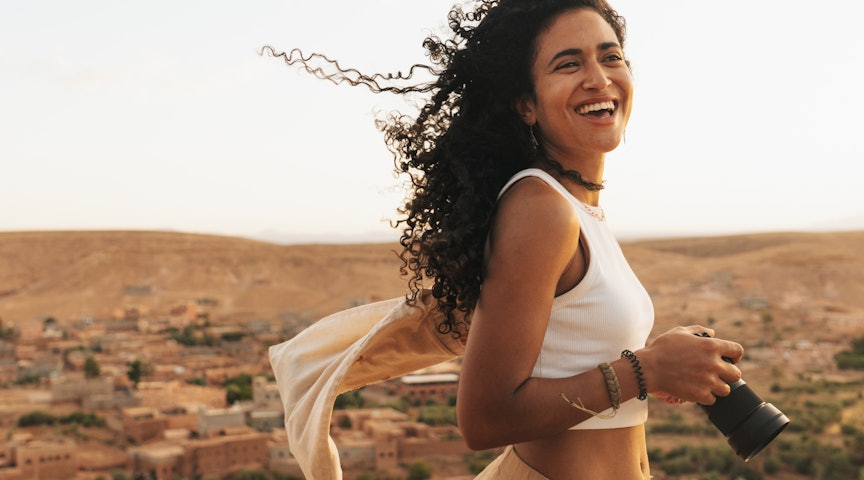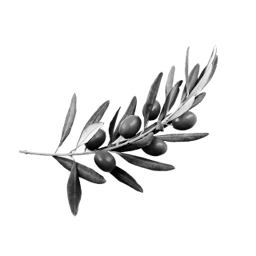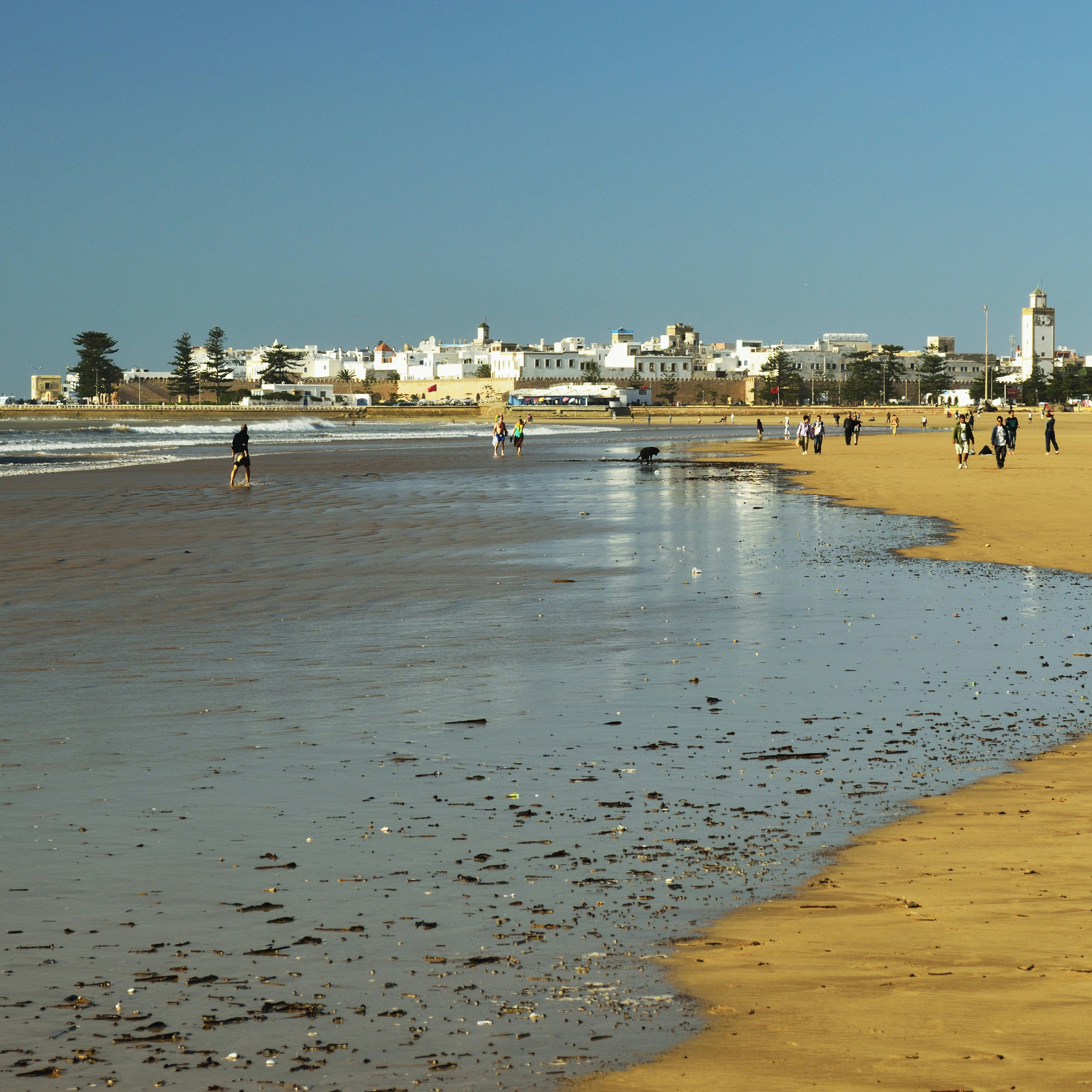
Overview
Easy, breezy Essaouira makes the perfect seaside escape. Its laid-back vibe, artsy atmosphere and sweep of golden sand have long attracted artists and musicians; there is a thriving local arts scene and lively music festivals throughout the year. Omnipresent wind gusts and consistent rollers mean that it attracts plenty of kitesurfers in spring and summer, and surfers over autumn and winter, although water sports are a draw year-round for beginners. Plan your trip to Essaouira with our travel inspiration, top attractions and expert tips.
Meet your new travel partner
Stay connected in Essaouira
Get unlimited data while you travel with Holafly eSIM. Peace of mind and no hidden fees wherever you go.
Take your Morocco trip with Lonely Planet Journeys
Time to book that trip to Morocco
Lonely Planet Journeys takes you there with fully customizable trips to top destinations–all crafted by our local experts.


Must-see attractions
Planning Tools
Expert guidance to help you plan your trip
Spending Diaries
How one writer combined free activities with luxury meals and a spa day in this coastal Moroccan city.
Read full article
Get a book. Get inspired. Get exploring.
in partnership with getyourguide



















